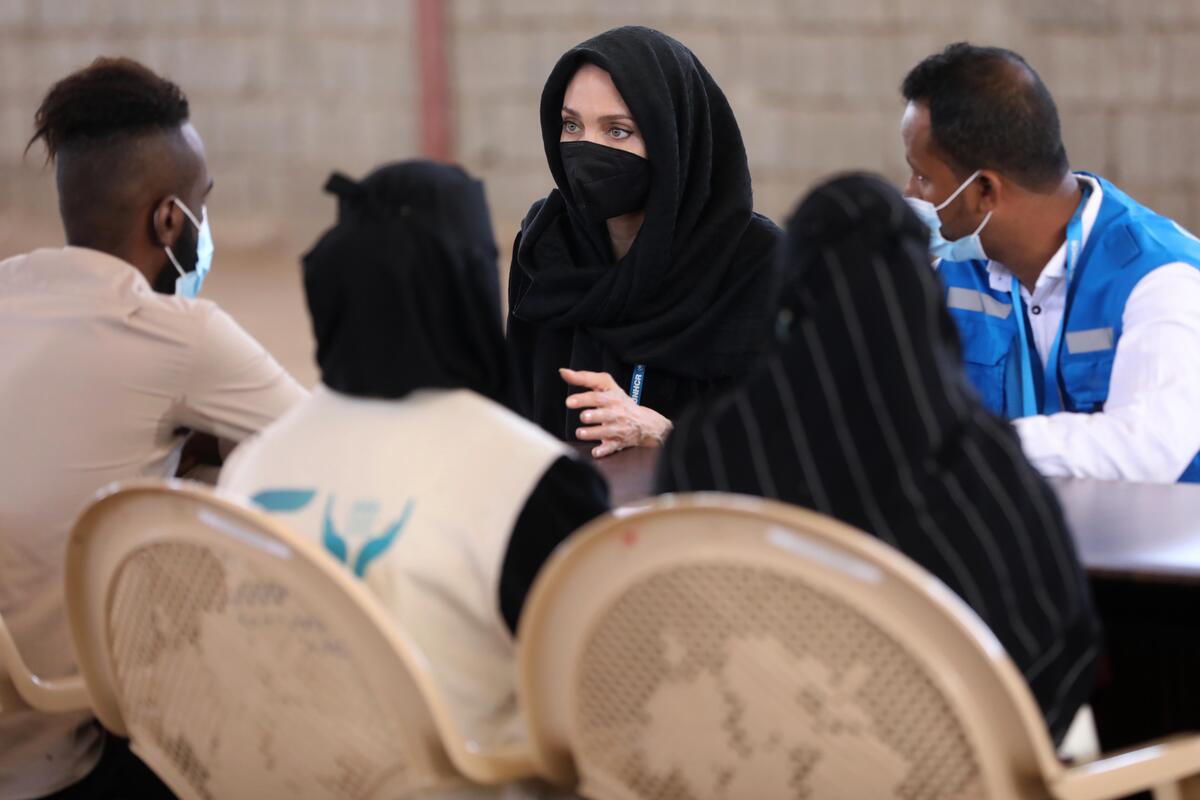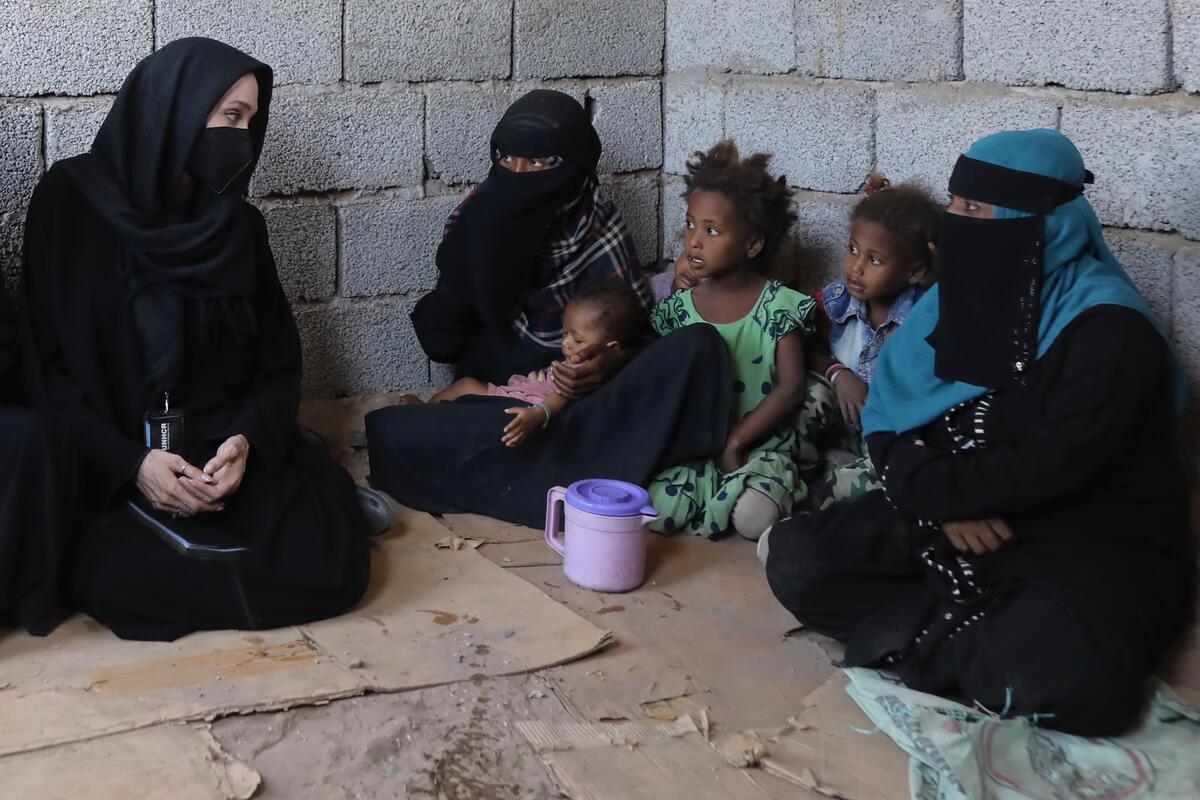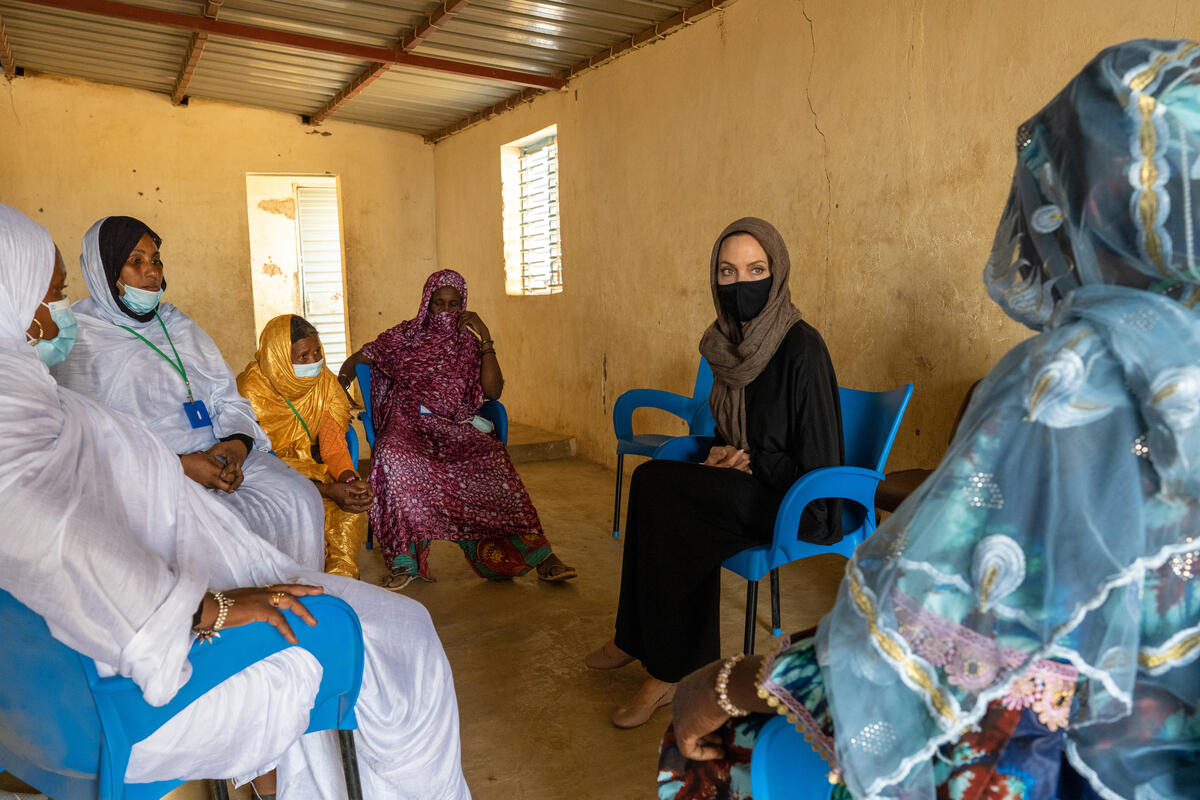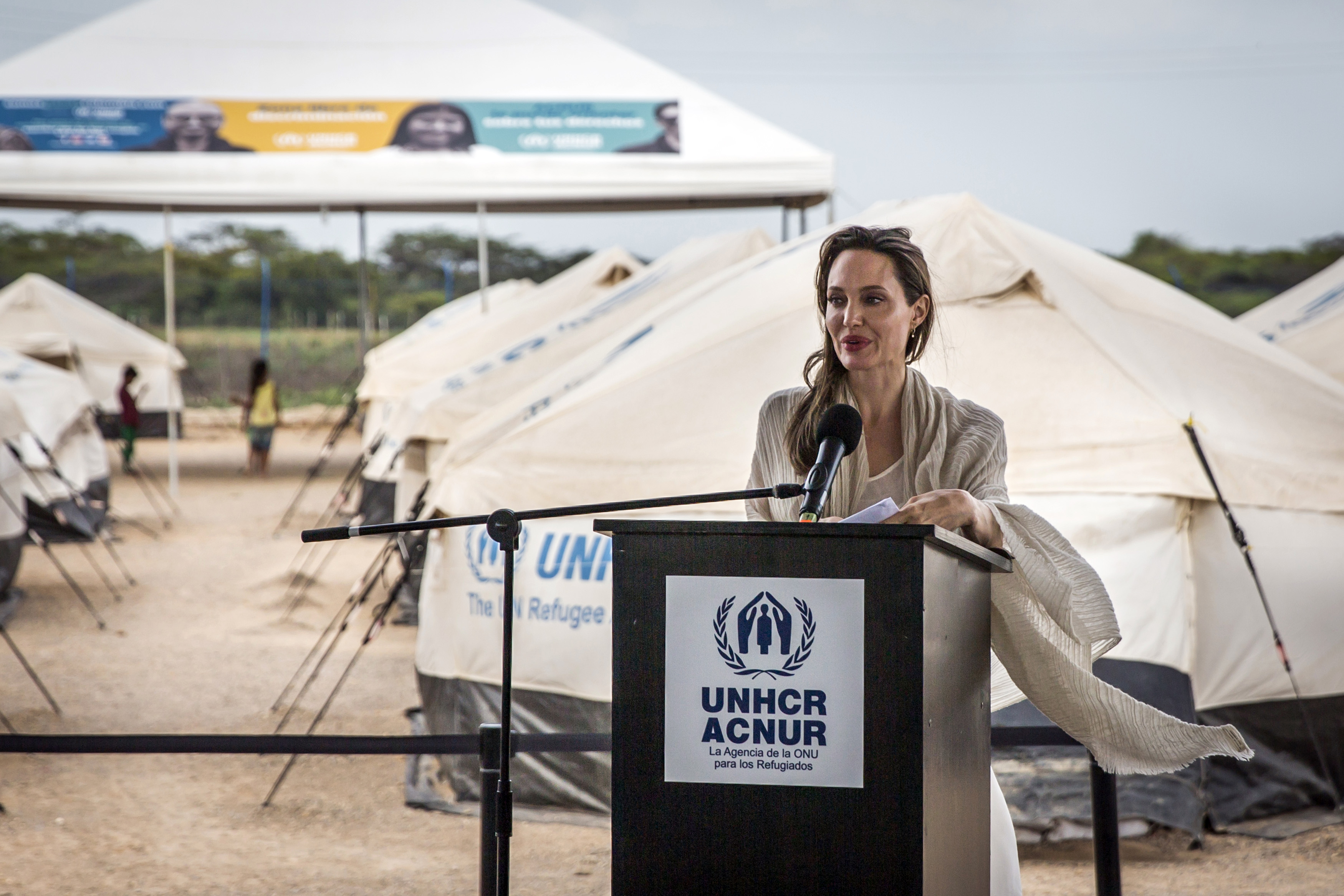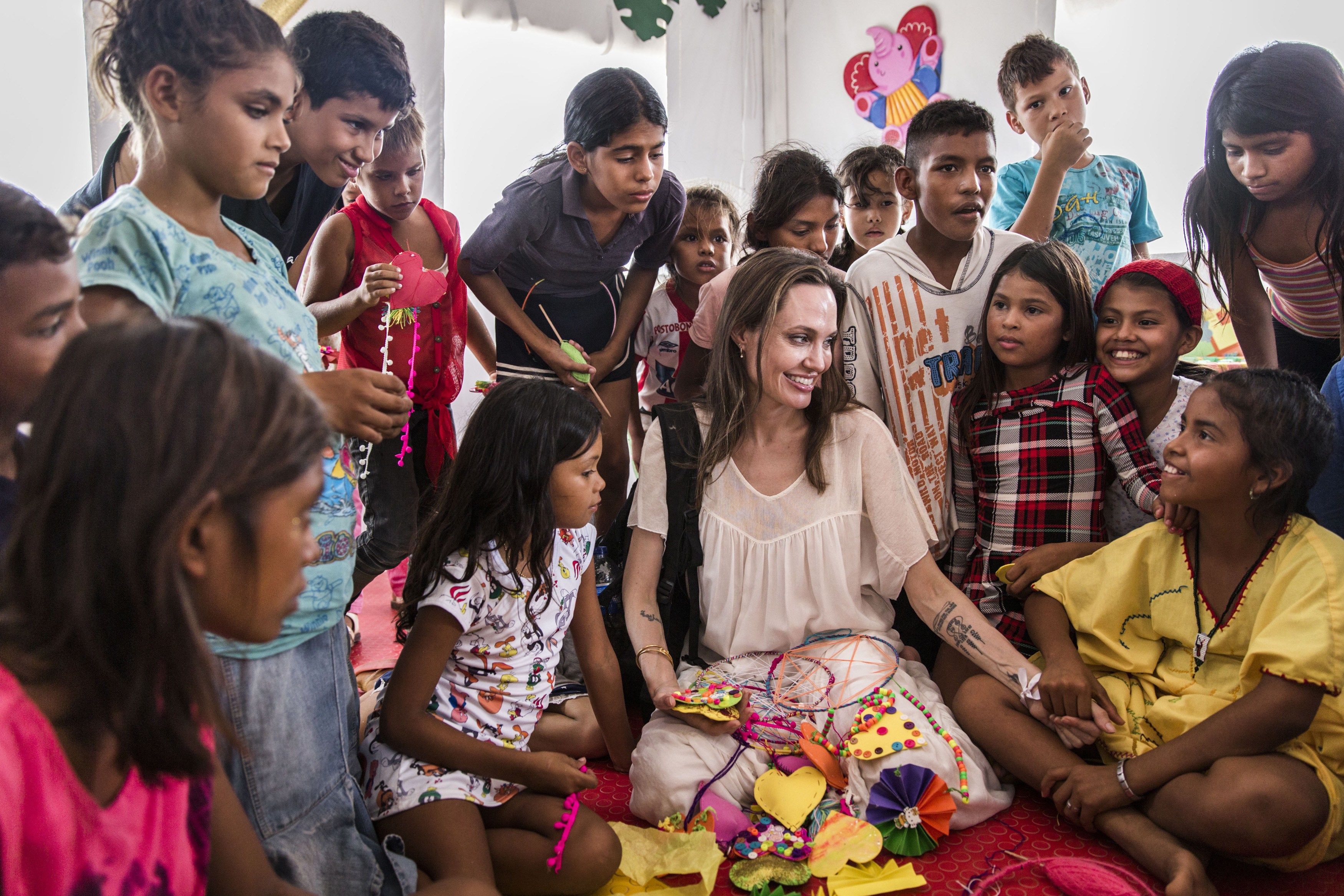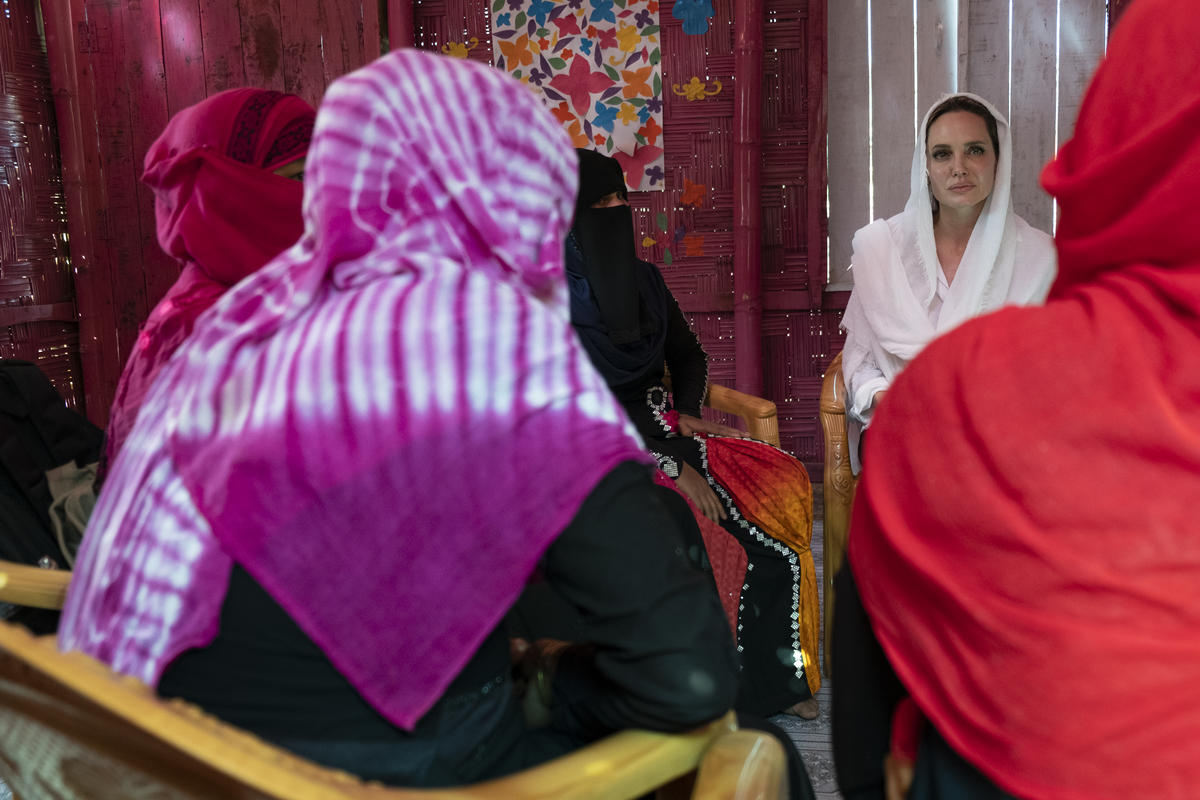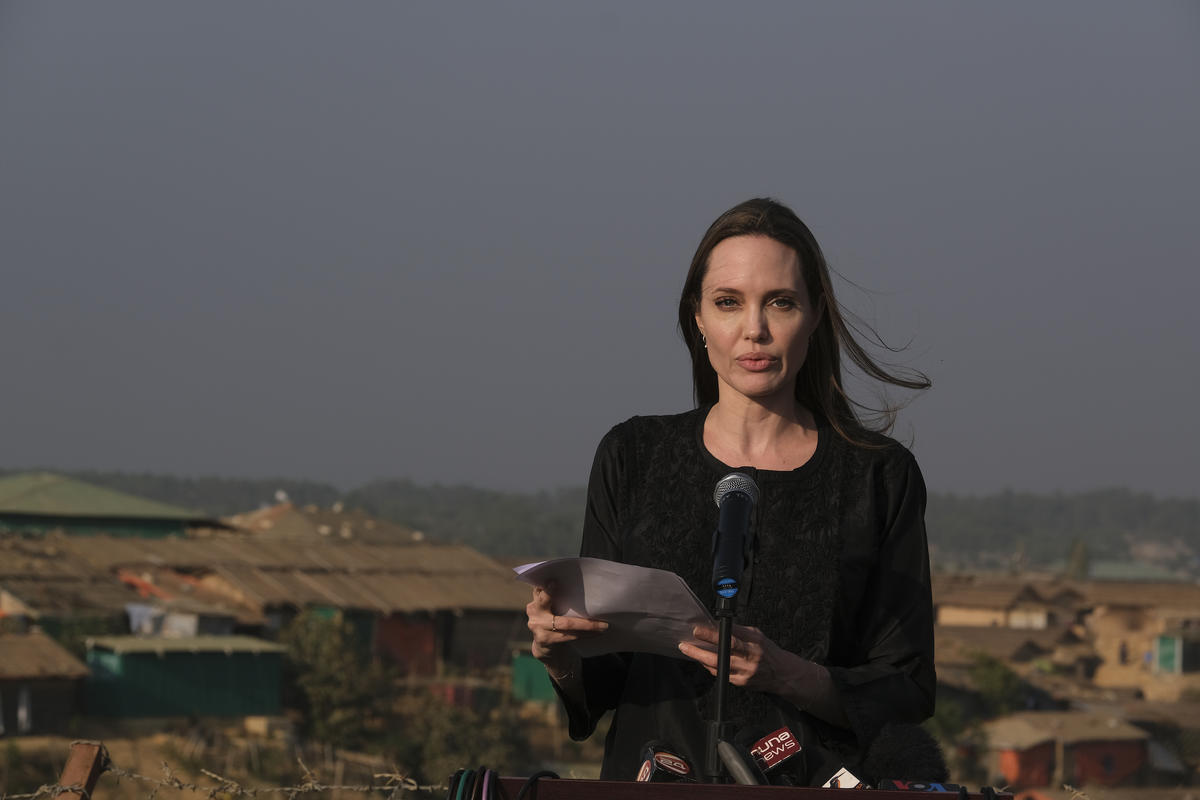UNHCR picks up Freedom Award for its global work
UNHCR picks up Freedom Award for its global work

NEW YORK, United States, November 8 (UNHCR) - The UN refugee agency has received the International Rescue Committee's annual Freedom Award for its contributions to the cause of refugees and human freedom.
High Commissioner António Guterres was on hand Wednesday at a special ceremony in New York to accept the award, with UNHCR Goodwill Ambassador Angelina Jolie offering her thanks via a taped message.
The Freedom Award has been bestowed each year by the International Rescue Committee (IRC) since 1957. Past recipients have included Winston Churchill (1958), Elie Wiesel (1987) and former US Presidents George Bush and Bill Clinton (2005).
It is the second time UNHCR has been honoured by the IRC for its work protecting refugees. Former High Commissioner Sadako Ogata received the Freedom Award in 1995.
At the awards dinner, Guterres spoke on behalf of the millions of people displaced within their countries. "The Freedom Award is a symbol that we will only be able to fully enjoy our freedom when everyone else is able to enjoy theirs," he said. Jolie, who was unable to attend the event, sent a video message in which she hailed the close partnership between UNHCR and the IRC.
The IRC traces it roots to 1933 when a United States branch of the European Emergency Relief Association was formed at the suggestion of prominent physicist and refugee, Albert Einstein. The committee has for many years been UNHCR's largest non-governmental partner.
People of concern to UNHCR include not only refugees, but related groups such as asylum seekers, refugee returnees, stateless people and some, but not all, of the estimated 25 million people who are displaced within their own countries, normally known as internally displaced people (IDPs).
Since 2006, the number of refugees worldwide has been increasing and now stands at some 10 million. This is largely a result of the crisis in Iraq.
Since its formation more than half-a-century ago, UNHCR has helped over 50 million people successfully restart their lives, earning two Nobel Peace Prizes in the process - in 1954 and 1981.
By Tim Irwin in New York, United States


